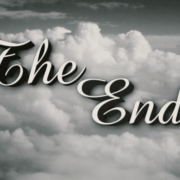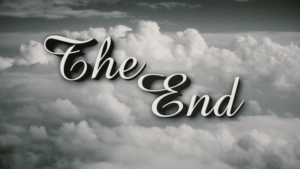Questions: What About the End Times?
“Then comes …”
1 Corinthians 15:24
Concerning the End –
Five Essentials That Every Christian Should Know
- Christ will return bodily to this earth to consummate His eternal reign, Ac 1:11; 2 Th. 1:7-10; 1 Co 15:22-28
- The dead will be raised to life, both the wicked and just, Dn. 12:2; Jn. 5:29; 2 Tim. 4:1.
- Christ will judge all men, living and dead, both wicked and just, Mt. 25:31-34; Acts 17:31; Heb. 9:27
- The wicked will be sentenced to eternal punishment in hell, Ps. 1:4-6 Mt. 25:46; Mk 9:47
- The just will enter heaven, the joy of their Lord for all eternity, Mt. 25:21; Rev. 21-22
There, that isn’t so difficult to comprehend, 1) Christ will return, 2) then a general resurrection occurs, 3) Christ judges all men, 4) Christ sentences the wicked, and 5) Christ rewards the righteous. The church has historically considered these five truths as essential teaching. You’ll find them incorporated into the historic creeds, confessions, and catechisms. Now these are given in the Bible so we can be prepared and know what we are to expect. Remember that Jesus has called us His friends, “You are My friends if you do whatever I command you. “No longer do I call you servants, for a servant does not know what his master is doing; but I have called you friends, for all things that I heard from My Father I have made known to you” (Jn. 15:14-15).
Because considering The End can be an unsettling matter to consider, we remind ourselves what our Lord Jesus Christ has purchased by His death on the cross. The Westminster Shorter Catechism rehearses a summary of these gospel benefits in questions 32 through 38. Speaking primarily of justification, adoption, and sanctification, but also mentioned are those several benefits which in this life do either accompany or flow from this gospel grace of Christ. I’ll call special attention here to the blessings of Gospel Rest, Protection, Comfort, & Concern
Rest in Christ – if you are believing in Christ today, you are in the ark of safety already and Christ says to you, “Let not your heart be troubled; you believe in God, believe also in Me”
Protection – God’s truth will keep you from being deceived or troubled by impetuous spirits who stir up and vex the church with their prophetic schemes (Mar. 13:21-22; 2 Thess. 1:3-8; Eph. 4:14). There is also a restraining grace provided through the innate knowledge that God will judge the world (Rm 1:18-20).
Comfort now and in the world to come – with the knowledge of Christ’s coming again (1 Thess. 4:18). It is the world that is in danger Christian, not you, for when Christ comes again the entire world will know it (2 Thess 1:7) for King Jesus will summon every person before Him, “and every knee shall bow…” (Rm. 14:11). Christians will be openly acknowledged and acquitted on that day, for “Who shall lay anything to the charge of God’s elect” & “Come you who are blessed of My Father, inherit the kingdom prepared for you…” (Rm. 8:33; Mt 25:31-46).
Loving concern for the world – As there will be a day of death for each so there will be a day of judgment for each one (Heb. 9:27). The knowledge that God will judge the world gives us reason to labor for the salvation of God’s elect (2 Ti 2:10) being constrained by the love of Christ (2 Co 5:14).
Christian you and I can LIVE and ABOUND in this framework by the grace of Christ – no matter how disconcerting today’s headlines may be.
Witness of the Christian Church from the Past about, The End >>>>
|
Testimony of the Reformed Presbyterian Church of North America
1. God has appointed to every man the time when he shall leave this world. Ps. 39:4-5; Eccl. 3:2; Ps. 139:16. 2. We reject the idea of inactivity of the soul between death and resurrection called “soul sleep.” Eccl. 12:7; 2 Cor. 5:1-9. 3. We reject the teaching that there is a “second chance” of salvation after death. Luke 16:22-26; Heb. 9:27; 2 Cor. 6:2; John 5:28-29; 2 Pet. 2:9. 4. We reject the teaching that there is a purgatory, where souls must be purified before entering heaven. Luke 23:43; 2 Cor. 5:6, 8; Phil. 1:23. 5. We reject the idea that the soul at death is, or can be, reincarnated in another human or animal form. Eccl. 12:7; Heb. 9:27.
Testimony of the Reformed Presbyterian Church of North America
1. The return of our Lord to earth is clearly taught in Scripture. He made many promises to return. His coming will be personal and visible. He will come in glory at a time unknown to man. Rev. 22:7, 12, 20; John 14:3; Acts 1:11; Rev. 1:7; 1 Thess. 4:16; Matt. 16:27; Col. 3:4; Luke 12:40; Rev. 16:15; Mark 13:32-35; 1 Thess. 5:2. 2. At the time of Christ’s second coming all the dead will be raised and the world will be judged. John 5:28-29; 2 Thess. 1:7-10; Ps. 96:13; Ps. 98:9. 3. We reject the teaching that the Kingdom of God can only be brought in by Christ’s return or that Christ is not now reigning as King over all things. Matt. 28:18; Eph. 1:20-22; Phil. 2:9-11; Col. 1:18. 4. The final judgment for the Christian will be an assessment of his obedience to God and of his stewardship of the gifts and talents God has committed to his care. Whatever is imperfect will be burned away, and his faithfulness will be rewarded. 2 Cor. 5:10; Rom. 14:10-12; 1 Cor. 3:9- 15; 1 Cor. 4:5; Matt. 25:14-40. 5. Believers are to look forward eagerly to the last great day, in which they will share in Christ’s final victory over evil and experience the fullness of joy which is found in the presence of God, forever. 2 Pet. 3:11-13; Ps. 16:11.
Westminster Larger Catechism Q. 29. What are the punishments of sin in the world to come? A. The punishments of sin in the world to come, are everlasting separation from the comfortable presence of God, and most grievous torments in soul and body, without intermission, in hell-fire for ever. 2 Thess. 1:9; Mark 9:43-44, 46, 48; Luke 16:24.
Q. 86. What is the communion in glory with Christ, which the members of the invisible Church enjoy immediately after death? A. The communion in glory with Christ, which the members of the invisible Church enjoy immediately after death, is, in that their souls are then made perfect in holiness, and received into the highest heavens, where they behold the face of God in light and glory; waiting for the full redemption of their bodies, which even in death continue united to Christ, and rest in their graves, as in their beds, till at the last day they be again united with their souls. Whereas the souls of the wicked are at their death cast into hell, where they remain in torments and utter darkness; and their bodies kept in their graves, as in their prisons, until the resurrection and judgment of the great day. Heb. 12:23; 2 Cor. 5:1, 6, 8; Phil. 1:23; Acts 3:21; Eph. 4:10; 1 John 3:2; 1 Cor. 13:12; Rom. 8:23; Ps. 16:9; 1 Thess. 4:14; Isa. 57:2; Job 19:26-27; Luke 16: 23-24; Acts 1:25; Jude 1:6-7.
Westminster Shorter Catechism ~ Benefits of Christ’s Redemption ~ Q29 How are we made partakers of the redemption purchased by Christ? A. We are made partakers of the redemption purchased by Christ, by the effectual application of it to us(1) by his Holy Spirit.(2) (2 – Titus 3:4-7) But when the kindness and the love of God our Savior toward man appeared, not by works of righteousness which we have done, but according to His mercy He saved us, through the washing of regeneration and renewing of the Holy Spirit, whom He poured out on us abundantly through Jesus Christ our Savior, that having been justified by His grace we should become heirs according to the hope of eternal life. Q30 How doth the Spirit apply to us the redemption purchased by Christ? A. The Spirit applieth to us the redemption purchased by Christ, by working faith in us,(1) and thereby uniting us to Christ in our effectual calling.(2) (1) Eph. 1:13,14; John 6:37,39; Eph. 2:8 Q31 What is effectual calling? A. Effectual calling is the work of God’s Spirit,(1) whereby, convincing us of our sin and misery,(2) enlightening our minds in the knowledge of Christ,(3) and renewing our wills,(4) he doth persuade and enable us to embrace Jesus Christ, freely offered to us in the gospel.(5) (1) 2 Tim 1:9; 2 Thess. 2:13,14 Q32 What benefits do they that are effectually called partake of in this life? A. They that are effectually called do in this life partake of justification,(1) adoption,(2) and sanctification, and the several benefits which in this life do either accompany or flow from them.(3) (1) Rom. 8:30 Q33 What is justification? A. Justification is an act of God’s free grace, wherein he pardoneth all our sins,(1) and accepteth us as righteous in his sight,(2) only for the righteousness of Christ imputed to us,(3) and received by faith alone.(4) (1) Rom. 3:24,25; Rom. 4:6-8 Q34 What is adoption? A. Adoption is an act of God’s free grace,(1) whereby we are received into the number, and have a right to all the privileges of the sons of God.(2) (1) 1 John 3:1 Q35 What is sanctification? A. Sanctification is the work of God’s free grace,(1) whereby we are renewed in the whole man after the image of God,(2) and are enabled more and more to die unto sin, and live unto righteousness.(3) (1) 2 Thess. 2:13 Q36 What are the benefits which in this life do accompany or flow from justification, adoption, and sanctification? A. The benefits which in this life do accompany or flow from justification, adoption, and sanctification, are, assurance of God’s love, peace of conscience,(1) joy in the Holy Ghost,(2) increase of grace,(3) and perseverance therein to the end.(4) (1) Rom. 5:1,2,5 Q37 What benefits do believers receive from Christ at death? A The souls of believers are at their death made perfect in holiness,(1) and do immediately pass into glory;(2) and their bodies, being still united in Christ,(3) do rest in their graves,(4) till the resurrection.(5) (1) Heb. 12:23 Q38 What benefits do believers receive from Christ at the resurrection? A. At the resurrection, believers being raised up in glory,(1) shall be openly acknowledged and acquitted in the day of judgment,(2) and made perfectly blessed in the full enjoying of God(3) to all eternity.(4) (1) 1 Cor. 15:43 |
Westminster Confession of Faith – Chapter 32 Of the State of Men After Death and the Resurrection of the Dead
1. The bodies of men, after death, return to dust and see corruption; but their souls (which neither die nor sleep) having an immortal subsistence, immediately return to God who gave them: the souls of the righteous, being then made perfect in holiness, are received into the highest heavens, where they behold the face of God, in light and glory, waiting for the full redemption of their bodies. And the souls of the wicked are cast into hell, where they remain in torments and utter darkness, reserved to the judgment of the great day. Beside these two places, for souls separated from their bodies, the Scripture acknowledgeth none. Gen. 3:19; Acts 13:36; Luke 23:43; Eccl. 12:7; Heb. 12:23; 2 Cor. 5:1, 6, 8; Phil. 1:23 with Acts 3:21 and Eph. 4:10; Luke 16:23-24; Acts 1:25; Jude 1:6-7; 1 Pet. 3:19.
2. At the last day, such as are found alive shall not die, but be changed: and all the dead shall be raised up, with the selfsame bodies and none other, although with different qualities, which shall be united again to their souls for ever. 1 Thess. 4:17; 1 Cor. 15:51-52; Job 19: 26-27; 1 Cor. 15:42-44.
3. The bodies of the unjust shall, by the power of Christ, be raised to dishonour; the bodies of the just, by His Spirit, unto honour; and be made conformable to His own glorious body. Acts 24:15; John 5:28-29; 1 Cor. 15:43; Phil. 3:21.
Westminster Confession of Faith – Chapter 33 Of the Last Judgement
1. God hath appointed a day, wherein He will judge the world in righteousness, by Jesus Christ, to whom all power and judgment is given of the Father. In which day, not only the apostate angels shall be judged, but likewise all persons that have lived upon earth shall appear before the tribunal of Christ, to give an account of their thoughts, words, and deeds; and to receive according to what they have done in the body, whether good or evil. Acts 17:31; John 5:22, 27; 1 Cor. 6:3; Jude 1:6; 2 Pet. 2:4; 2 Cor. 5:10; Eccl. 12:14; Rom. 2:16; Rom. 14:10, 12; Matt. 12:36-37.
2. The end of God’s appointing this day is for the manifestation of the glory of His mercy, in the eternal salvation of the elect; and of His justice, in the damnation of the reprobate who are wicked and disobedient. For then shall the righteous go into everlasting life, and receive that fullness of joy and refreshing, which shall come from the presence of the Lord: but the wicked, who know not God, and obey not the Gospel of Jesus Christ, shall be cast into eternal torments, and be punished with everlasting destruction from the presence of the Lord, and from the glory of His power. Matt. 25:31-46; Rom. 2:5-6; Rom. 9: 22-23; Matt. 25:21; Acts 3:19; 2 Thess. 1:7-10.
3. As Christ would have us to be certainly persuaded that there shall be a day of judgment, both to deter all men from sin, and for the greater consolation of the godly in their adversity; so will He have that day unknown to men, that they may shake off all carnal security, and be always watchful, because they know not at what hour the Lord will come; and may be ever prepared to say, Come, Lord Jesus, come quickly, Amen. 2 Pet. 3:11, 14; 2 Cor. 5:10-11; 2 Thess. 1: 5-7 Rom. 8:23-25; Matt. 24:36, 42-44; Mark 13:35-37; Luke 12:35-36; Rev. 22:20.
Westminster Larger Catechism Q. 89. What shall be done to the wicked at the day of judgment? A. At the day of judgment, the wicked shall be set on Christ’s left hand, and, upon clear evidence and full conviction of their own consciences, shall have the fearful but just sentence of condemnation pronounced against them; and thereupon shall be cast out from the favorable presence of God, and the glorious fellowship with Christ, his saints, and all his holy angels, into hell, to be punished with unspeakable torments both of body and soul, with the devil and his angels for ever. Matt. 25:33; Rom. 2:15-16; Matt. 25:41-43; Luke 16:26; 2 Thess. 1:8-9.
Westminster Shorter Catechism Q. 19. What is the misery of that estate whereinto man fell? A. All mankind, by their fall, lost communion with God, are under his wrath and curse, and so made liable to all miseries in this life, to death itself, and to the pains of hell for ever. Gen. 3:8, 10, 24; Eph. 2:2-3; Gal. 3:10; Lam. 3:39; Rom. 6:23; Matt. 25:41, 46.
|




